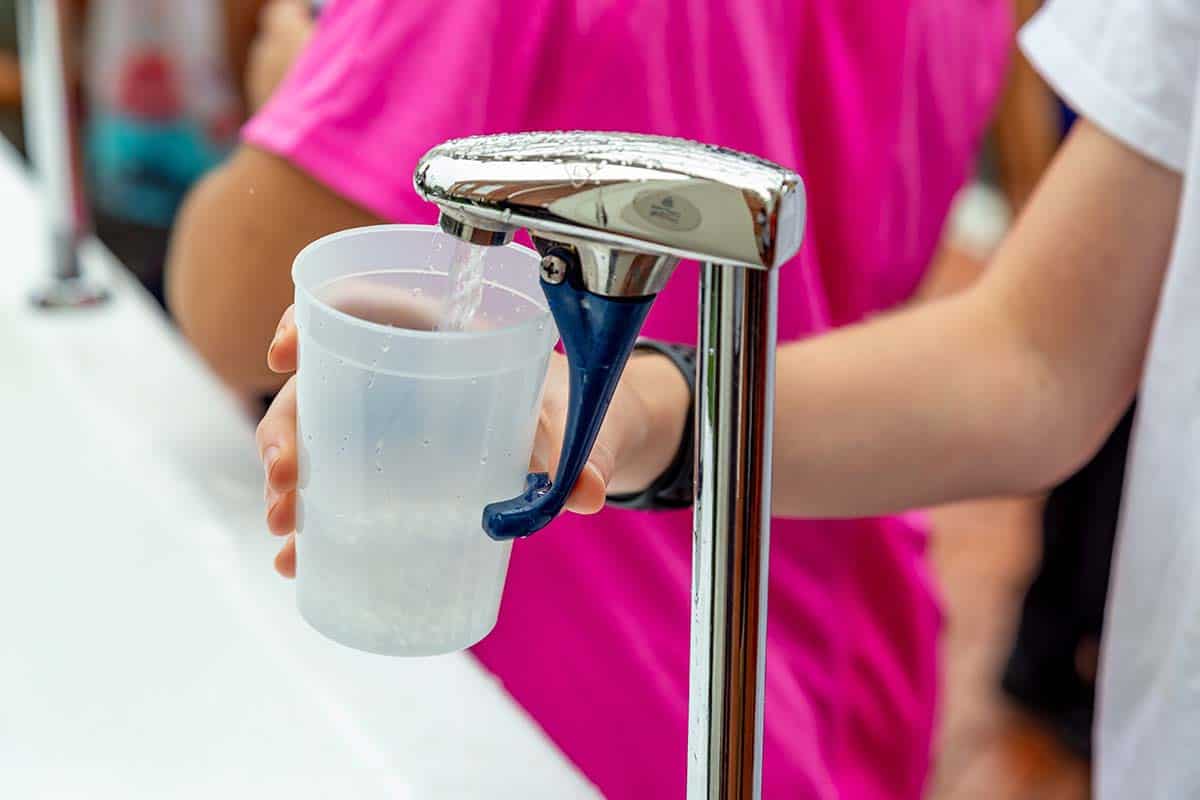
If you live in Maine or plan to move there, you may already know how beautiful the state is. Maine is a small water paradise on earth with more than 6,000 lakes and 5,000 miles of coastline.
Every year more than 12 million people visit its beaches and help to generate $1.6 billion for its economy. Maine is a prosperous state that sustains 50,000 jobs annually. Moreover, it produces drinking water for more than 600,000 residents and tourists every year.
While the above information may portray Maine as a well-sorted state, it fails to highlight its degrading tap water problems.
Does Maine Have Clean Water Sources?
Unfortunately, Maine’s water often faces the wrath of pollution. The U.S. state has an outdated municipal system that fails to deal with heavy rainstorms irrespective of its growth.
Maine’s poor water management often leads to the discharge of untreated sewage and stormwater runoffs in the state’s water sources. Moreover, the failed septic systems are also a concerning issue.
These units consist of tanks that treat domestic water waste for local consumption. However, they are often poorly maintained and are a significant source of impurities found in domestic water supplies.
Other than the above threats, Maine’s rivers are a victim of phosphorus and nitrogen runoffs. The excess use of fertilizers, detergent, and pesticides is one of the main reasons behind the high levels of contaminants found in Maine’s water sources.
In the last two decades only, the use of pesticides by local companies and homeowners has increased by a whopping 700%.
Is Maine’s Tap Water Worth Your Consumption?
Considering the above facts, it doesn’t feel right to trust the quality of Maine’s tap water – not entirely.
The primary sources of water in the state are lakes, groundwater, and aquifers. And more than half of Maine’s lakes suffer from disastrous algae blooms. Moreover, on average one in every six wells in any town contains high levels of arsenic.
While lead isn’t a water component, it has been a part of Maine’s domestic water supplies for long. If all these problems weren’t enough, the flawed sewage system in Maine makes everything worse.
Water is everyone’s lifeline. But when contaminated, it does more harm than good. With so much happening to Maine’s water supply, it is safe to say that this water isn’t worth anyone’s consumption.
The Implications Of Unsafe Water
Here are some ways in which contaminated water can affect your health:
- Untreated water consumption may cause chronic illnesses like cancer.
- Harmful contaminants can lead to gastrointestinal illnesses, reproductive issues and can harm the nervous system.
- Contaminated water is also a major cause of learning disabilities in kids.
- Unsafe water can spread diseases like diarrhea, typhoid, polio, and cholera.
This information may scare you for life. But that’s not the point here. As a consumer of Maine’s tap water, these alarming facts should make you analyze the intensity of the situation. And, if you have never taken the water issue seriously, it’s about time you take action.
Maine’s tap water deserves your attention!
How To Make Your Tap Water Safe In Five Ways?
For the sake of your and your loved ones’ health, follow the five ways below to make your tap water safe for your consumption.
1. Professional Testing
If you consume your water from one of the many wells in Maine, it is vital to get it tested. You can visit www.maine.gov to look for a list of tests you need to conduct on your water source.
Moreover, to find an authentic lab, the Maine Health and Environmental Testing Laboratory’s website may prove helpful. You can also choose to order a water testing kit to conduct these tests on your own.
But, professional guidance is necessary to draw a correct conclusion.
If your tap water comes out contaminated, don’t hesitate to consult your regional government and demand quick action. Simultaneously change your water source to ensure your safety.
2. Install a Water Filter
Because you can’t trust Maine’s water supplies blindly and you never know what contaminants it contains and how harmful they may turn out to be, the wisest thing to do to is installing a water treatment system in your home. How about the best whole house water filter and softener combo?
Both whole house water filters and water softeners are a blessing in disguise. While a whole house water filter removes all the impurities in the water flowing from your taps, showerheads, and faucets, a water softener removes minerals that often make your water hard. Hard water clogs pipes and is harmful to your skin and hair.
By the way, whole house systems are “point of entry” units. They treat water in the main line and ensure filtered water flowing through every pipe in your house. Having a filter and a softener in combo is a significant investment but less expensive than installing them separately.
3. Use Boiled Water
If you can’t arrange a water filter yet, you can always choose to boil your tap water before consumption. While this method may not be as effective as water filtration, it does help to kill all kinds of bacteria, parasites, and pathogens.
Boiled water has a flat taste, and to improve it, you can add a pinch of salt to the end product. You can also pour the boiled water from one jar to another and let it settle for some hours.
4. Use Chlorine Bleach
In case of emergencies and no time for boiling, a chemical disinfectant can help to boost the quality of your drinking water. Household bleach can kill many harmful bacteria and viruses. However, this remedy isn’t entirely effective against parasites or other resistant organisms.
Before you add chlorine bleach to your water, make sure to read all the instructions on the bottle properly. Choose a product that is unscented and contains no more than 5% to 9% of sodium hypochlorite.
5. Reduce Water Waste
As a Maine resident, we are certain you love your state and call it home. But to make sure your little paradise stays safe from water pollution, you need to do your bit.
Avoid excessive use of plastic and fertilizers. Also, don’t overburden your sewage system by flushing everything unnecessary down your toilet. Make sure your trash ends up in the waste bins rather than your sinks and eventually water supplies.
Moreover, play your part in making sure Maine’s beaches are clean and safe for humans and sea life. You can either run a campaign on your own or join an already active group working to make Maine a safe place to live.
These little efforts will accumulate into more significant actions and create revolutionary changes to the poor water quality of Maine. You can learn more from waterfilterguru.com .
Unsafe Drinking Water Is A Nightmare
Living without a safe water source is a nightmare. Not only is it dangerous for your health, but it can also have a harmful impact on the environment, marine life, and the overall economy.
The tap water quality in Maine is not up to the mark and needs strong intervention before the situation gets worse. The best thing is to install a water filter in your home.
But you can also reduce water waste and do your bit to improve the current situation. Only a collective effort will make Maine a safe place to live…








